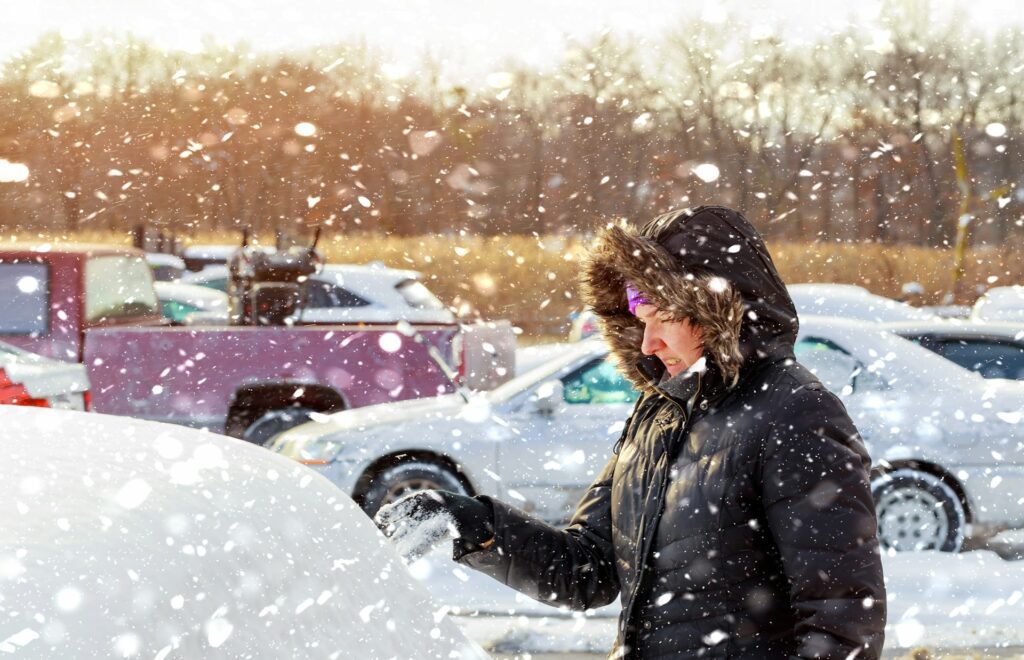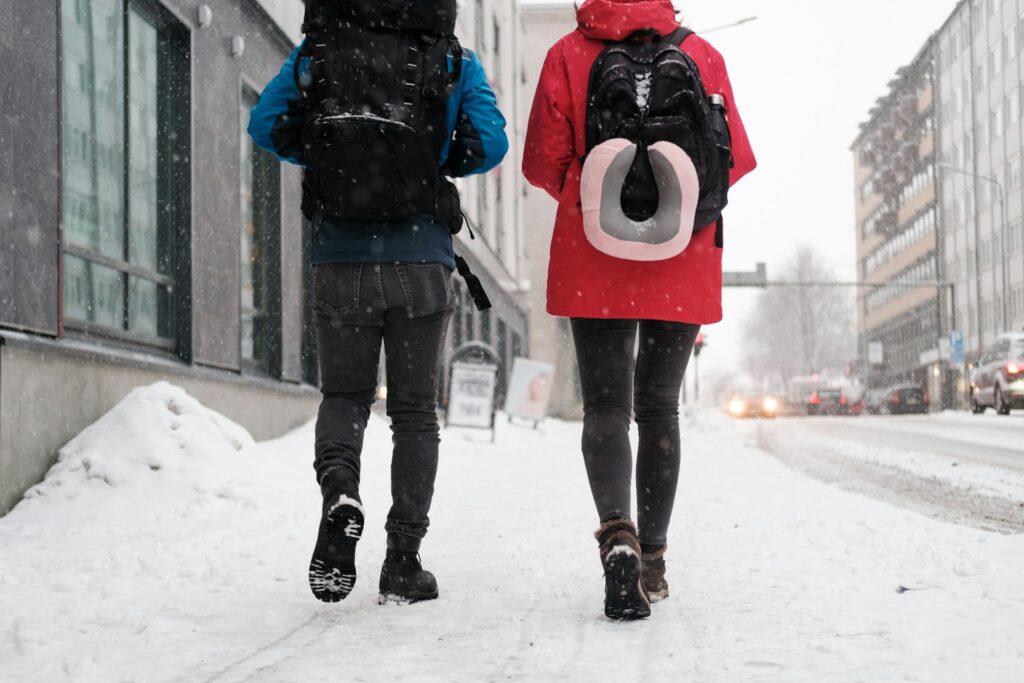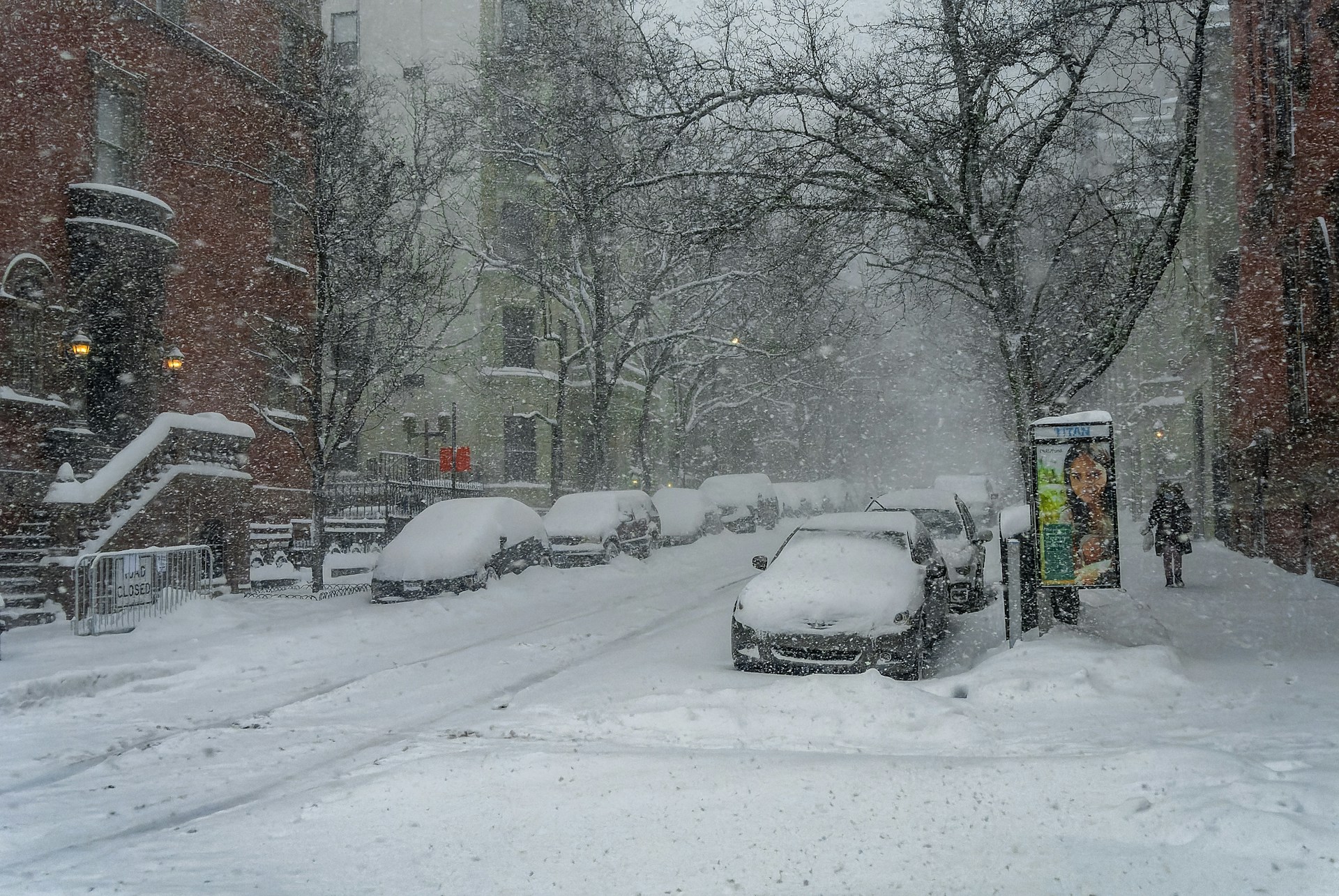Welcome to Canada! The land of stunning landscapes, 4 unique seasons, and, yes, some dramatic weather! If you’ve recently moved to Canada, you might be hearing terms like weather warnings, watches, and advisories. These alerts are important messages designed to keep you safe. While it’s exciting to experience all types of weather, always check for weather updates before travelling, especially during snowstorms or icy conditions.
And don’t forget, the Canoo mobile app offers free or discounted access to over 2,000 partner experiences across Canada. Perfect for planning safe, fun activities year-round. Download today to unlock all the Canoo freebies!
Who Issues Weather Warnings in Canada?
In Canada, weather warnings come from Environment and Climate Change Canada (ECCC). This federal agency monitors the skies 24/7, using advanced technology to identify severe weather and alert the public.
What Do Weather Alerts Mean?
Weather alerts are divided into 3 main categories:
- Advisory: Advisories are a gentle nudge warning you about weather that might be inconvenient but is not dangerous. Think of foggy mornings, light freezing rain, or gusty winds.
- Watch: A watch is a heads-up that severe weather might occur. For example, a tornado watch means conditions are favourable for a tornado, but one hasn’t formed yet. A watch gives you time to prepare and stay alert.
- Warning: A warning means severe weather is happening or will happen very soon. If you see a blizzard or tornado warning, it’s time to act and take precautions to stay safe.

Common Weather Hazards in Canada
Canada’s size and climate range bring a wide range of weather hazards. Understanding these common dangers can help you prepare.
Snowstorms and Blizzards
- These bring heavy snow, strong winds, and reduced visibility.
- If a snowstorm warning is issued, stay indoors if possible. If you must go out, dress in warm layers and avoid driving unless necessary.
Tip: Braving Canadian winters means bundling up in the right gear. Investing in a quality jacket can make all the difference. Check out our guide to finding the perfect winter jacket here. If items are no longer in stock online, visit your local Mark’s and ask for guidance in finding your perfect winter coat!
Extreme Cold and Freezing Rain
- Temperatures in winter can drop dangerously low, especially with wind chill. Freezing rain can make roads slippery and cause power outages.
- Wear insulated clothing and carry an emergency kit with blankets, food, and water if travelling.

Tornadoes
- Tornadoes are most common in southern Ontario, Alberta, and Saskatchewan during summer.
- If a tornado warning is issued, take shelter immediately in a basement or an interior room without windows.
Flooding
- Heavy rainfall or melting snow can cause rivers and lakes to overflow.
- Avoid flooded areas and never attempt to walk or drive through moving water, as it can rise quickly and be dangerous.
Heatwaves
- Summers in Canada can bring extreme heat, which may lead to dehydration or heatstroke.
- Stay hydrated, avoid outdoor activities during peak heat, and seek air-conditioned spaces to cool off.
By understanding these weather hazards, you’ll be better equipped to enjoy Canada’s seasons while staying safe.
Tips for Staying Safe and Prepared
Canadian weather can be unpredictable, but you can take steps to navigate it safely:
- Stay informed by following local news for weather alerts.
- Be prepared with an emergency kit in your home and car. Include essentials like water, food, flashlights, batteries, and extra clothing.
- Plan for severe weather by avoiding unnecessary travel. If you must travel, check road conditions and carry emergency supplies.
- Know your region! Canada’s weather varies by location. Coastal areas like British Columbia may face heavy rain, while the Prairies often experience strong winds and tornadoes.

Canadian weather is an adventure. From snowy winters to sunny summers, every season offers something special. With a bit of preparation and awareness, you can enjoy it all safely. Whether you’re braving a winter storm or soaking up the sun on a summer day, knowing how to handle the weather makes all the difference.





